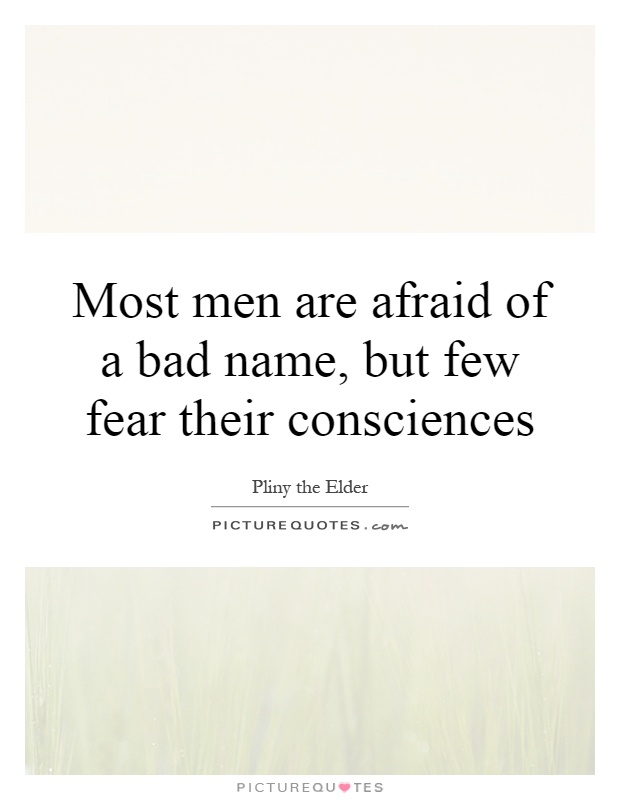Most men are afraid of a bad name, but few fear their consciences

Most men are afraid of a bad name, but few fear their consciences
Pliny the Elder, a Roman author, naturalist, and philosopher, is known for his extensive writings on a wide range of topics, including history, science, and ethics. In his work, he often explored the complexities of human nature and the moral dilemmas that individuals face in their daily lives. One of the themes that Pliny frequently touched upon was the idea that most men are afraid of a bad name, but few fear their consciences.This statement speaks to the idea that many people are more concerned with their reputation and how they are perceived by others than they are with their own internal sense of right and wrong. In ancient Roman society, where honor and reputation were highly valued, the fear of a bad name could have serious consequences for an individual's social standing and opportunities for advancement. As a result, many people were willing to compromise their principles and act in ways that were dishonest or unethical in order to protect their reputation and avoid being judged harshly by others.
However, Pliny suggests that true moral integrity comes from listening to one's conscience and following one's own sense of right and wrong, regardless of the opinions of others. He believed that a person's conscience, or inner moral compass, should be the ultimate guide in making decisions and determining one's actions. By prioritizing one's conscience over external judgments and societal expectations, individuals can live with integrity and authenticity, even if it means risking a bad name or facing criticism from others.
Pliny's perspective on the fear of a bad name versus the fear of one's conscience is a timeless and universal theme that continues to resonate with people today. In a world where social media and public opinion can have a powerful influence on individuals' lives, it is more important than ever to cultivate a strong sense of moral integrity and to listen to one's conscience when making decisions. Pliny's words serve as a reminder that true character and virtue come from within, and that it is ultimately our own conscience that we must answer to in the end.












 Friendship Quotes
Friendship Quotes Love Quotes
Love Quotes Life Quotes
Life Quotes Funny Quotes
Funny Quotes Motivational Quotes
Motivational Quotes Inspirational Quotes
Inspirational Quotes